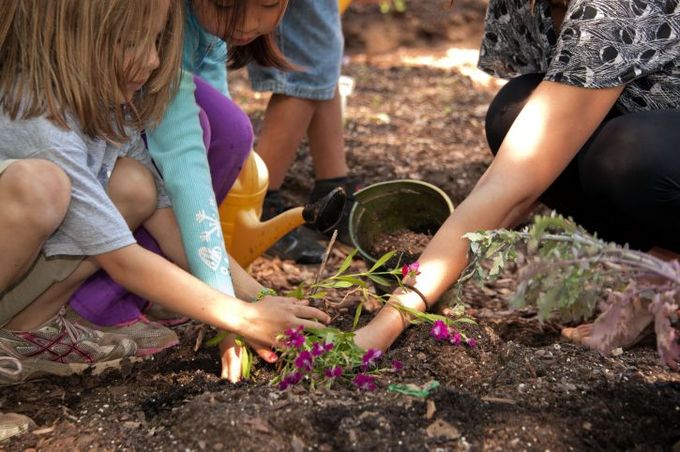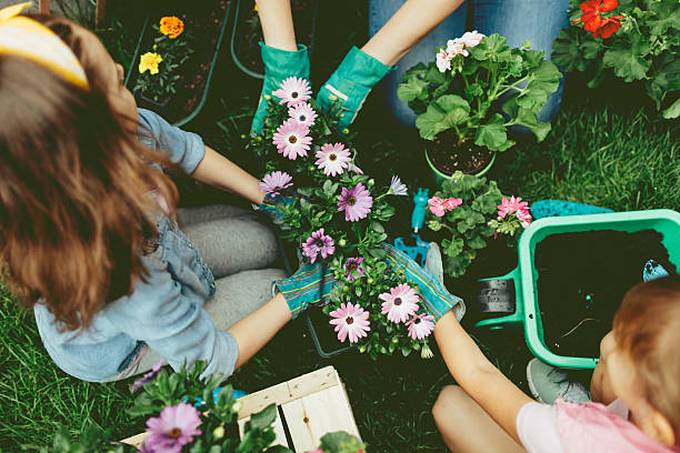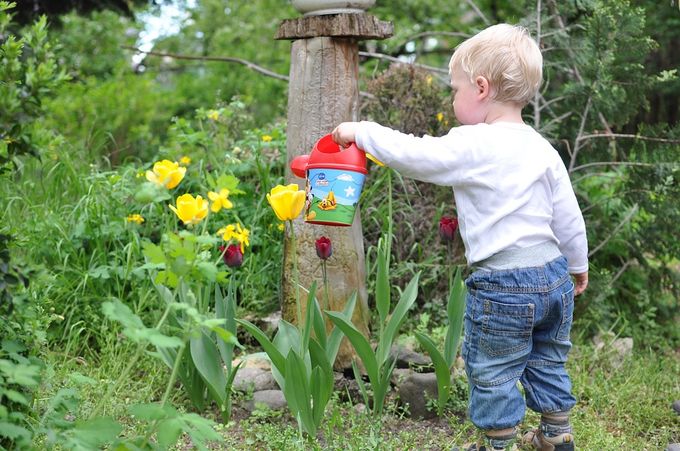
You do not want to be one of those parents who scream at their teenaged kids to put down their handheld devices or get away from their games consoles and get out of the house. So, one of the best ways to encourage your children to love being outdoors, while laying the foundations for a love and appreciation of nature, then the garden is the best place to start.
Gardening is a therapeutic and rewarding activity for both kids and adults, but it is also a wonderful way for you to bond with your kids and encourage them to develop crucial skills. Here, we are going to look at the benefits (for both generations) of encouraging your kids to get into gardening, as well as a few handy hints for getting them involved and enthusiastic.
Soon they will be beaming with pride as they watch the (literal) fruits of their labors grow and flourish, and you will be right there with them beaming with pride!
The benefits of gardening
Aside from the obvious benefits of fresh air and exercise, gardening can be an extremely useful tool in your child’s development as well as strengthening your relationship with them as you mentor and nurture them through the process. They can learn a very great deal while having fun in the great outdoors. Key skills that gardening teaches children include:
-
Responsibility
– A plant is a living organism that requires care and attention to grow and bloom. This is a safe and risk- free way to teach your kids responsibility. If you are unsure whether your child is ready for a pet then this is a great step towards finding out.
-
A working understanding of nature
– In the classroom, kids tend to learn about the world around them in abstract terms. By gardening with them they can gain an understanding of how plants work and gain nourishment as well as how plants compete with weeds to survive.
-
Discipline and self-belief
– Children learn the discipline of watching their plant grow over time and they are gratified when it blossoms. This shows them that they have the ability to achieve their goals.
-
Reasoning skills
– Gardening enables your children to understand the language of cause and effect in the natural world. They see that plants wither and die if they do not get enough sunlight or nutrition, they discover that certain plants need specific types of soil to grow. This helps to engage their reasoning skills.
-
Physical activity
– While not strenuous, gardening is nonetheless a fun and kinesthetic activity that will help your children to live an active lifestyle.
-
Cooperation
– Working with parents (or better yet, involving their friends) is a great way of developing teamwork and cooperation skills.
-
Nutrition
– Most parents tear their hair out when it comes to getting their kids to eat fresh fruits and vegetables. Gardening is great for helping kids to learn where fresh food comes from, while encouraging a working understanding of nutrition.

Create positive associations
The benefits of encouraging kids to take an interest in gardening are undeniable, but it can be tricky if they are not accustomed to engaging with the natural world. The best way to broach the subject is by gradually creating positive associations with your garden. A picnic (laden with delicious fresh fruit and veggies) in the garden is a great way to lay the foundations. Your kids should feel that the garden is a safe, fun and attractive place where they should enjoy spending time. Kids are never the wrong age for this but you should make sure that your garden is safe for kids if they are very young. A WeatherWise garden fence is very useful and weatherproof solution for keeping your garden safe and secure while any dangerous gardening implements or potentially toxic plants should be introduced to children in a very controlled way.
Encourage play
Play is one of the most effective ways to get children to learn and associating the garden with play is a surefire way of encouraging a love and respect for it. Make an adventure out of exploring the garden and getting to know the plants. If your child has an artistic flair then pick up some garden variety plant parts from your local gardening store and spend a few hours getting your child to paint them in a range of designs. These will encourage them to personalize their plants, giving them a sense of ownership over the project as well as a sense of emotional investment.

Plant fun things
While the acts of planting and watching plants grow are their own rewards, it is important that children are able to enjoy the result of their weeks of nurturing their plants. It is important to plant something that will be rewarding for them when it finally blooms. What that is will depend very much on the child, but it should offer some form of sensory gratification.
While fruits and vegetables are the obvious solution for this (they will also learn that nothing you buy in a store can touch the taste of homegrown foods), they are far from being their only option.
Bright, colorful fruits, vegetables and flowers will be particularly appealing to kids, especially if they are very visually oriented. Some kids need to touch to engage with something so it is best to choose a hardy crop that will be able to endure handling. It is also a good idea to select something that will grow quickly (kids can only be patient for so long), and offer different multi-sensory gratifications. Plants such as sunflowers, corn and pumpkins are great examples of this.
The plant world is alive with colors and textures so select plants that have a range of diverse feels, as well as intriguing natural perfumes and pleasant tastes. If you are unsure where to start, here are a few to get the ball rolling.
-
Touch
– Woolly lamb’s ear is a good one for this, as are succulents (e.g. aloe vera), bottlebrush species and snapdragons. Cacti are also fun to touch for careful hands. Encourage your child to handle them gently and stroke their furry quills.
-
Taste
– This is your chance to broaden their palate by planting basil, strawberries, peas, carrots, rosemary or cherry tomatoes
-
Smell
– Smell is a great memory trigger so plant fragrant plants like jasmine, sweet peas, lavender, pelargoniums, or lemon balm to start creating treasured memories of gardening with you.
